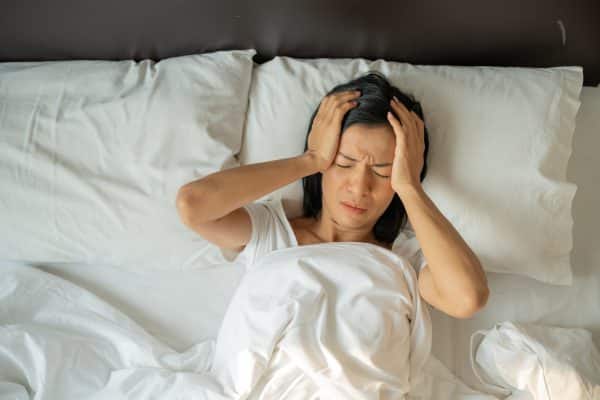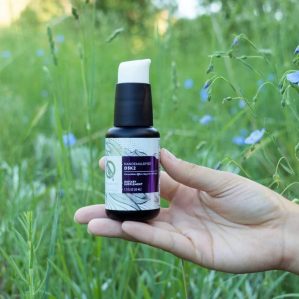What You Need to Know About Sleep Deprivation—6 Critical Reasons Why You Should Address It Immediately
Critical Reasons Why You Should Address It Immediately
Overview

But while sleep loss is easily noticeable in the short term, its long-term health consequences may not be so apparent. It is estimated that about one-third of American adults are chronically sleep deprived, which means they are repeatedly not getting the recommended sleep of 7-9 hours. Research suggests that over time, sleep deprivation can have serious health complications and increase the risk of several diseases.
Let’s dig deeper!
How much sleep do you need per day?
Ideal sleep time means the amount of rest your body needs to function optimally—both physically and mentally. It can vary a lot from person to person. Some
Apart from your constitution, your sleep requirements are also dependent on your current age and physical or mental conditions. Older adults usually need less sleep than children and teenagers.
Sleep deprivation can happen if you regularly miss out on the recommended sleep time. It may be caused by multiple factors like irregular sleep-wake routine, poor sleep hygiene, work-related obligations, chronic pain conditions, insomnia, or sleep disorders. But very often, it is a result of poor lifestyle choices and misplaced priorities.
Signs and symptoms of sleep deprivation
A feeling of lethargy or sleepiness in the daytime is the first noticeable sign that you may not be getting good quality sleep. But it can also have a wide range of subtle effects on your mood and personality that may not be so easy to spot.
- Reduced attention span and slower thinking
- Difficulty in remembering or recalling things
- Lack of energy
- Stiff or achy joints
- Feeling irritable and often snapping at others
How sleep deprivation affects your health (What are 6 effects of sleep deprivation?)
1. Sleep deprivation can lower your immune function
Numerous studies have found that losing your sleep on a regular basis can make you more susceptible to common infections and allergies. This is because sleep plays a profound role in immune regulation and wound healing. When we are in a state of complete rest, the body dedicates its resources towards repair and regeneration. The formation of new cells (including white blood cells) also takes place during the slow-wave stage of sleep.
It is during sleep that the body can efficiently produce antiviral and antibacterial proteins to fight off an invading pathogen. Quality sleep enhances the release of inflammation-fighting cytokines, making you feel better and recover faster from illnesses. Research shows that chronic sleep deprivation can increase low-grade inflammation and suppress normal immune responses.
Researchers have found that sleeping for 7-9 hours per day also promotes long-term maintenance of immunological memory, which is the ability of your immune system to recognize a previously encountered antigen and quickly respond to it.
2. Sleep deprivation is a risk factor for cancer
Emerging evidence suggests that prolonged sleep loss impairs your body’s innate ability to identify and kill tumors. Chronic sleep deprivation has been associated with a greater risk of several types of cancer, including breast, colon, lung, prostate, and stomach cancer. Interestingly, sleeping for more than 9-10 hours each night has also been found to increase the risk of liver and breast cancers.
Not getting enough quality sleep, sleeping for an insufficiently short time, irregular sleep schedules, oversleeping, or trying to “catch up” on sleep during the daytime can disrupt the circadian rhythm, interfering with the working of the melatonin hormone. Melatonin is known to have anti-cancer effects and plays a crucial role in regulating inflammation, therefore facilitating natural immune response against tumors.
Numerous human and animal studies have demonstrated that disruption of the circadian rhythm can contribute to abnormal cell proliferation, increased gene mutation, and resistance to apoptosis (program cell death cancerous and abnormal cells), thus favoring the growth and progression of tumors. In one animal study, researchers found that acute sleep deprivation for 72 hours significantly reduced the anti-tumor activity of natural killer (immune) cells.
Getting high-quality sleep of 7-9 hours is also recommended during cancer treatments and is known to improve the quality of life in patients.
3. Sleep deprivation favors weight gain
Chronic lack of sleep has been associated with increased weight gain, poor metabolism, and higher body-mass index. Your sleep quality directly influences two key hormones responsible for weight management: ghrelin and leptin.
Ghrelin is the hunger hormone made in your stomach; it signals the brain that you need food to maintain your energy levels. Leptin, on the other hand, signals satiety and tells you when to stop eating. A perfect balance between these two hormones is essential for appetite regulation and long-term energy balance.
Research shows that insufficient sleep can increase the levels of ghrelin and suppress leptin, making you crave high-calorie, high-fat foods. It also increases cortisol levels and favors binge eating. According to a 2004 study, people who slept for less than 6 hours each night were about 30% more likely to gain weight than those with adequate sleep.
 4. Sleep deprivation may increase the risk of chronic disease
4. Sleep deprivation may increase the risk of chronic disease
Apart from increasing weight gain, sleep loss can also affect your body’s ability to regulate blood sugar levels and blood pressure. During sleep, the blood vessels relax to allow maximum flow of lymphatic fluids and nutrients, and the stress response system gets a reboot, which keeps blood pressure levels in check. If you regularly miss out on this much-needed reboot, it may put your control center under stress and trigger a number of health problems.
Research shows that people who are chronically sleep deprived have a greater risk of developing metabolic conditions like type-2 diabetes (28% higher risk), hypertension, dyslipidemia, arrhythmias, coronary artery disease (48% higher risk), and stroke. On the other hand, quality sleep has been known to lower the risk of all types of cardio-metabolic conditions, as well as auto-immune diseases.
Missing out on recommended sleep hours on a regular basis can also impair glucose metabolism and insulin sensitivity, making it harder to manage type-2 diabetes. In addition, it contributes to inflammation that can harden arteries and restrict blood flow. Researchers have found that while a night of restful sleep does not appear to lower inflammation, losing your sleep for even one day can increase its multiple markers.
5. Sleep deprivation can trigger or worsen hormonal imbalances
The endocrine system—a complex network of glands and organs that regulate the production of hormones—is heavily dependent on your sleep quality. It works on a delicate balance of numerous hormones and neurochemicals that together control almost every aspect of your physical and emotional wellness, from mood and energy levels to digestion and sex life.
When you do not get enough rest, your body may not be able to maintain normal functioning of key hormones like cortisol, estrogen, testosterone, thyroid, melatonin, serotonin, and insulin. This is why you feel all confused and zombie-like after a restless night! Over time, improper sleep habits can trigger wide-ranging health problems like mental fogginess, low mood, chronic fatigue syndrome, frequent headaches and migraines, hair fall, acne breakouts, and menstrual irregularities.
6. Sleep deprivation can contribute to skin aging
Lack of quality rest can even rob your skin of its natural luster and give you more fine lines! Research suggests that a good night’s sleep is vital for maintaining youthful and well-nourished skin and is associated with decreased risk of skin disorders.
During the slow-wave stage of sleep, the body repairs and restores the protective skin barrier and increases the production of collagen—the structural protein that keeps your skin plump and smooth. It is also the time when any external creams and serums are most effectively absorbed and integrated into deeper skin layers.
On the other hand, chronic sleep loss has been found to increase pore size and accelerate both intrinsic (age-related) and environmental skin aging. It can also raise your cortisol levels, which is known to break down skin collagen and trigger dehydration and pimples.
Final thoughts
Insufficient or fragmented sleep can hinder daily functioning and adversely affect your health and longevity in many ways. Studies have linked chronic sleep deprivation with impaired brain function, low mood, hormonal disruption, poor immune function, and rapid skin aging. In the long run, it can even raise your risk of developing chronic diseases, including obesity, type-2 diabetes, hypertension, depression, arthritis, heart disease, and cancer.
Many people accept lack of sleep as part of their hectic lifestyle and try to counteract the negative health effects by other strategies like sleeping more during weekends or drinking more caffeine and energy drinks. It is important to understand that these solutions are neither sustainable nor a replacement for high-quality rest. Prioritize your sleep and focus more on creating healthy habits for living fuller and happier. If you often find it difficult to fall asleep or are suffering from some pain conditions, try these natural sleep remedies.
For natural and healing remedies, products, and supplements that can help you live your most optimal healthy life, visit our store here!
To Your Health!
References
https://www.nhlbi.nih.gov/health/sleep-deprivation
https://www.ncbi.nlm.nih.gov/books/NBK19961/
https://www.ncbi.nlm.nih.gov/pmc/articles/PMC3256323/
https://www.nature.com/articles/s42003-021-02825-4
https://www.nature.com/articles/s12276-021-00681-0
https://www.ncbi.nlm.nih.gov/pmc/articles/PMC4377487/
https://www.ncbi.nlm.nih.gov/pmc/articles/PMC3065172/




























0 Comment